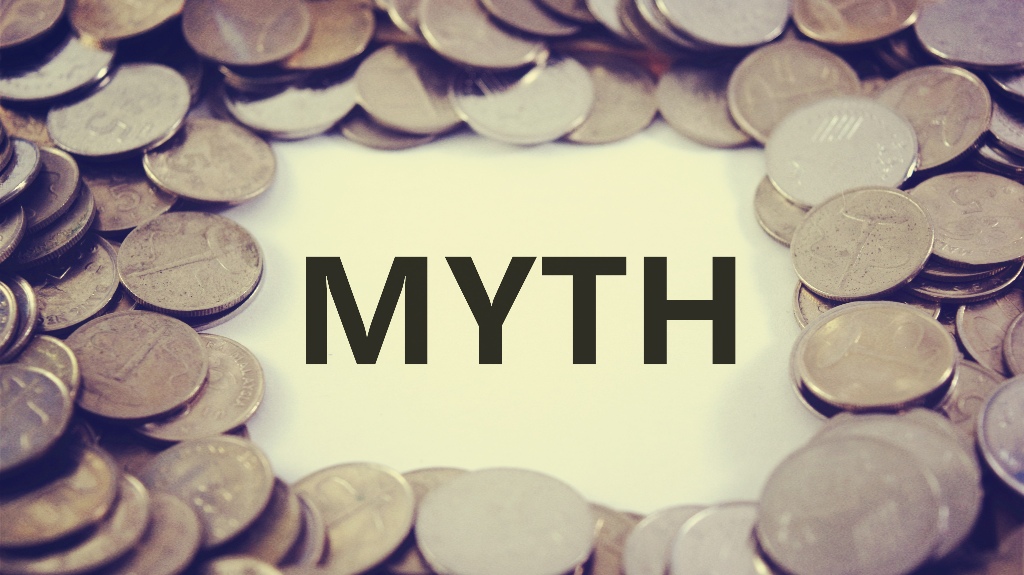
Dealing with overwhelming debt can be a challenging experience, especially when misconceptions about bankruptcy prevent individuals from seeking financial assistance. If you are considering filing for Chapter 13 bankruptcy in Augusta, GA, it is important to separate fact from fiction and understand how this legal process can help you achieve financial stability.
At Duncan Bankruptcy Law, we have helped over 10,000 clients navigate the Chapter 13 bankruptcy process in the Augusta area. As a firm specializing exclusively in bankruptcy, debt relief and student loan law, we understand the complexities of Georgia’s bankruptcy system and are here to provide expert advice.
Myth 1: “Chapter 13 Bankruptcy Means Losing All Your Property”
Reality: One of the biggest concerns people have when considering bankruptcy is fear of losing their homes, cars, or other valuable possessions. However, Chapter 13 bankruptcy has been created to help individuals keep their property while restructuring their debt.
Under Georgia bankruptcy exemptions and federal law, debtors can protect essential assets such as:
- Homestead exemption (up to $21,500 in home equity for individuals)
- Vehicle exemption (up to $5,000 per vehicle)
- Personal property (clothing, household goods, tools of the trade)
A Chapter 13 repayment plan allows you to pay off missed mortgage or car payments over a period of 3 to 5 years, avoiding the possibility of foreclosure or repossessions. This differs from Chapter 7, which may involve the sale of exempt property. Chapter 13 focuses on making structured payments rather than selling assets.
Myth 2: “Bankruptcy Ruins Your Credit Forever”
The truth is that bankruptcy can affect your credit score, but this effect is not permanent. Many people see their credit scores starting to improve within a year or two after filing for bankruptcy, especially if they take responsibility for their finances after the bankruptcy process.
Here’s why:
- Chapter 13 remains on your credit report for 7 years (compared to 10 years for Chapter 7).
- You can rebuild your credit faster by making on-time payments and using secured credit cards.
- Some lenders even offer loans or credit cards to people who have filed for bankruptcy before their case has been resolved.
In fact, for many people struggling with debt, bankruptcy provides a faster pathway to financial recovery than continuing to miss payments or default on loans. If you are considering bankruptcy, it’s important to understand how it will affect your credit rating. Learn more about the impact of bankruptcy on your credit here.
Myth 3: “You Can’t File for Chapter 13 If You Have a Job”
Unlike Chapter 7 bankruptcy, which has strict income limits, Chapter 13 is designed for individuals with regular incomes. To qualify, you must have a steady income, as the repayment plan is based on your current income.
In Augusta, GA, your eligibility is determined by:
- Median income comparisons (based on current median income levels in Georgia based on household size)
- Debt limits (up to $1,395,875 for secured debts and up to $465,275 unsecured debt as of 2023).
Even if you have a high income, you may still be eligible for bankruptcy if your expenses leave little room for paying off debt.
Myth 4: “You Can’t Discharge Any Debt in Chapter 13”
A common misconception about Chapter 13 bankruptcy is that it doesn’t result in debt discharge, because it requires repayment. However, while it’s true that Chapter 13 has a structured payment plan that lasts three to five years, the ultimate goal is still a comprehensive discharge of qualified debts, providing a fresh financial start legally.
If a debtor successfully completes all plan payments and meets other requirements, they are entitled to a discharge of their remaining unsecured debt under 11 U.S. § 1328. This includes:
- Credit card debt
- Medical bills
- Personal loans
- Past-due utility bills
In addition to discharging unsecured obligations, Chapter 13 provides powerful tools for restructuring and eliminating certain secured and priority debts, which are not available in Chapter 7. Some of these tools include:
- Catching up on missed mortgage payments (stopping foreclosure)
- Second mortgage relief (if your home is underwater)
- Eliminating specific tax debts (if they meet IRS eligibility criteria)
At the end of your repayment period (3-5 years), any remaining unsecured debts will be cleared, giving you a new financial start.
Myth 5: “You Don’t Need a Lawyer to File Chapter 13”

Reality: While it is technically possible to file for bankruptcy without an attorney, Chapter 13 is a complex legal process with strict requirements. Mistakes can lead to:
- Dismissal of your case
- Loss of property
- Denial of debt discharge
An experienced Augusta Chapter 13 bankruptcy attorney can:
- Negotiate with creditors to lower payments.
- Maximize exemptions to protect your assets.
- Ensure compliance with court deadlines.
Take the First Step Toward Financial Freedom
Don’t let myths hold you back from getting out of debt. Chapter 13 bankruptcy is a powerful legal tool that can help hardworking people in Georgia to get a fresh start. If you are in Augusta and struggle to make ends meet, we can help. Contact Duncan Bankruptcy Law for a free case evaluation without obligation. Let us show you the way out of darkness and into light.


